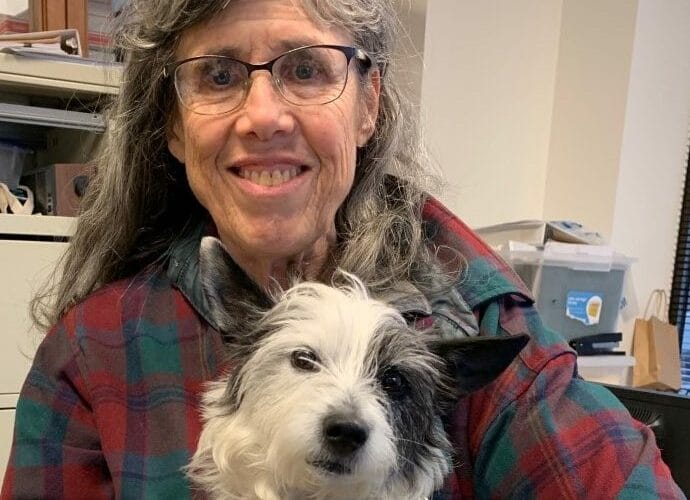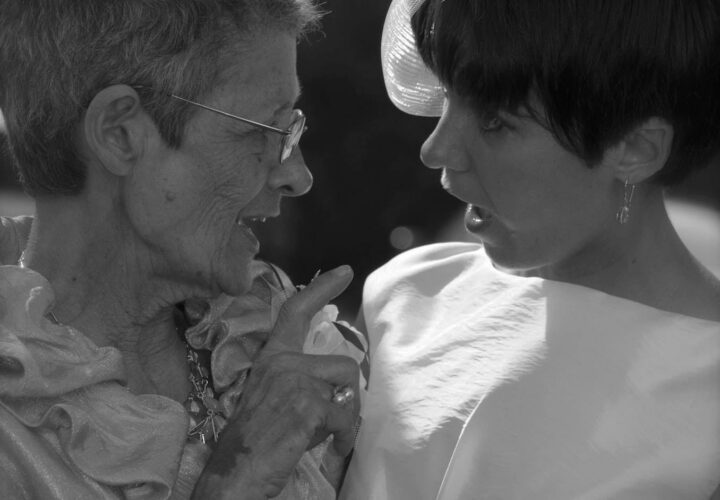Being Patient spoke with Sima Schoen from the Family Caregivers Alliance about one of her most frequently asked questions: "Can I get paid for being a family caregiver?"
Millions of Americans live with Alzheimer’s and other forms of dementia — and millions more take care of them. By 2050, cases of Alzheimer’s are expected to triple, meaning millions more children, other family members, and friends may find themselves with a new job that can take many hours each week, and sometimes, every bit of energy and patience we have. Caregivers are under huge amounts of stress and anxiety under normal circumstances — and especially now in the midst of a pandemic. And recent studies show that nearly three quarters of the caregivers experience mild to severe interruption of their jobs, and more than 40 percent may spend more than 10 hours a week providing care. Many people serving as caregivers for loved ones need to ask: Is there a way to get paid for being a family caregiver?
Being Patient spoke to Sima Schoen from the Family Caregivers Alliance about ways caregivers can earn compensation for their time assisting their loved ones.
BEING PATIENT: Could you explain your role at the Family Caregivers Alliance?
SIMA SCHOEN: I’m the National Caregiver Resource Specialist. We have people calling in from all over the country, and I answer the call for all of the states except for California. People who are taking care of family members usually call, and sometimes the person who needs the care, the care recipient, is calling, but they all want information about what services are available in their state. I provide that information to the best of my ability.
BP: What do you get asked most frequently?
SS: Most people are calling to learn if they can get paid for taking care of a family member. I would say maybe 95% or more are calling to find out how they can get paid, or the care recipient is calling on behalf of the caregiver, trying to find out how their spouse or their daughter or whoever can get paid.
BP: This is a big issue. As an example, for millennials who are taking on care of a parent, a recent survey found that providing care often has a notable impact on their livelihood: Half of 235 millennials surveyed said their work was affected by caregiving, and about one third said they had to cut back on hours which resulted in losing job benefits or losing a job altogether. Nearly one in six millennial caregivers said they had to stop working entirely.
There are resources available to offer caregivers emotional support and better information — but the financial burden of caregiving is real. How do you find people caring for their loved ones managing to stay afloat through that financial burden?
SS: People calling in also vary in terms of how much money they have, how much family support is available, whether they’re on Social Security.
A lot of people have had to give up their jobs to take care of their family member who is ill, and that means if the care recipient is on Social Security, two people may have to get by on one person’s Social Security. That isn’t good.
Some people live in states that provide paid family leave like California, New Jersey, Rhode Island and New York. In July, Washington D.C. is also supposed to be offering paid family leave and the state of Washington is on the verge of that as well.
So, people are usually in pretty dire straits when they call. For them to get paid to take care of a family member through government financial assistance, the person they’re caring for either has to be Medicaid eligible, or if they are not, they have to live in a state that has a non-Medicaid, state-funded program. In some cases, if the care recipient is a veteran or survivor of a veteran, they may qualify for some assistance through Veteran Affairs.
BP: How do programs that help people get paid for being a family caregiver differ state to state?
SS: Each state has a Medicaid-funded program known generically as a Medicaid Waiver. In almost all of the states, a family member can be paid to take care of the care recipient, and only in 15 states or so can a spouse get paid.
In most states, there’s no necessary training, but in some states, there is. We try to keep the information up to date about the programs that are out there.
BP: Is paid leave similar to unemployment?
SS: No, it’s not. We used to have a list of state unemployment offices that allowed a person to receive the unemployment benefit if they had to quit work to take care of a family member, but we don’t have it anymore.
So, individually, people need to talk to their unemployment office in their state to find out if they can do that.
BP: Is there an instance you can describe where someone was really in urgent need of assistance?
SS: It’s hard to think of just one, I started keeping a file at my desk at work called “As the World Turns,” which used to be daily daytime soap opera, and I was not trying to do that to make light of these people’s stories, but the situations that people call with — you couldn’t make them up. Stories so horrible, where their primary care recipient is disabled, they have a disabled spouse, they have a daughter who’s just had a stroke… Sometimes people call who do “carousel care.” They have three or four people in the family who are also disabled, and the one person who’s calling is the caregiver for all of them.
BP: Has the FCA come up with any creative solutions for caregivers looking for compensation?
SS: We didn’t come up with them, but we make sure that the families hear about programs that can help: One is called a personal care agreement and that’s for families where the care recipient doesn’t qualify for Medicaid as they may be financially comfortable. They’re not worrying about money, and a personal care agreement is a contract between the person who’s ill and the family member who’s taking care of them. The contract includes how much an hour the person is getting, how many hours a week they’re working and what duties they will perform. It’s a legally recognized document and it serves two purposes: One, it enables the caregiver to be taking care of the care recipient without fear of recrimination from other family members, and it is also useful if the care recipient needs to enter a facility or apply for other services that Medicaid might pay for. The personal care agreement can show that care payments were a legitimate expense and not an attempt to hide assets by giving cash to family members.
BP: Do you have any advice for caregivers?
SS: I tell them to take as good care of themselves as possible and it’s almost laughable except it’s not — their health suffers a great deal. Some people call who are totally with the program — they love taking care of their family members, they’re not stressed, and they’re just doing it. But I try to find ways that they can, even if it’s little baby steps for them, to take care of themselves, and to get a certain amount of time for themselves every day — to just sit and breathe.







Hi I have taken care of my brother for 17 years now he is mentally handicapped. I love him very much but it does require 24 hour care in one capacity or another. My question is we live in Ohio and he gets ssi is there a way for me to be paid as his caregiver? Thank you have a wonderful day. Rennae Sollman
I am 50 I m the primary care taker of my mother in her late 80’s with alzeimers. I recently lost my job due to Covid 19 I live in Florida my mom is receiving ss I am trying to find out if unemployment will continue to support me as my moms care taker even after the pandemic is over. Please help
God Bless you IM IN THE SAME EXACT SITUATION IN FLORIDA…Im land off a job i have worked at for 13 yrs for a Dentist… Since the COVID 19 lay off My mom has taken a turn for the worst and I don’t see me going back to work without any help… We are living off a personal system purity alone at this moment and are becoming homeless on July 1st
Dana Totten . I’ve been a care giver for my sis in law since Aug 5 2022 and have not been paid as promised
.What do I do?
Though I am in the early stages of this dreaded condition. I find your articles very helpful. Knowing what to expect, the help available as things progress & understanding now what my family will go through are things that are good to know. Thank you
have been caregiver for mom 6 years. now with corna virus she requires more care and more hours to keep her safe. but I am broke and losing everything and asking for rental assistance. This is not right. Make 35 a day which is 990 a month and my rent is 825 plus all my bills. Can not work extra as there 7 days two shifts a day to keep mom safe. Lost half my income so 990 a month is nothing in Bay. People are collecting unemployment and kind of pissed and students are getting loans they do not have to pay for. What about the rest of us that are working and having a hard time I am single and devoted my life to help mom but getting upset that I can not make ends meet. Wish was unemploy and could make ends meet
I am providing care for my partner. I can only work 5 hours per day. I need help with money to pay bills . Who do I talk to , how do I apply?
I have cut down my work to two days a week. Mom gets sad when she is by herself. Obviously has beginning stage of dementia, forget stove on. Very stressful for her, she is always forgetting! Starting to use the wrong words for things. I do most of the cooking and cleaning , yardwork. It would help if I got paid a little bit to pay my bills. Thanks for listening! Pop had Alzheimer’s. Died 4 years ago.🙂
Yes I live in Texas and lost my husband tragically in 2019 at that same time my mom had strokes one of many got dignosed stage 5 renal failure, Congestive Heart Failure, Insulin Diabetic, and early stages of Dementia. No one helps me family wise and we live off her measley SS Check. Can you please see if i can get paid to care for my mom. Its very stressful that i haven’t even grieved my husband i just automatically thru myself into caring for my mom which helps block it out. Today is when I found out she is early stage Dementia Thank you for reading a small piece of our life,
WHO DO I REGISTER WITH FOR COMPENSATION as a care giver for my wife full time as she has demensha and has had it for two years.?
I live in TN and had to quit working to take care of my mother after my father passed. She has dementia and we have to live off what she brings in. What can I do in this situation.
my daughter has heart failure and blood clotting problem the doctor stated she needs a home care caretaker,. she is under the age of 65yrs old.
Hello, I am 54 years old and i am on SSI in arizona for a mental disability since 2013. For the past 15 years i was my dads caretaker (without pay) until he passed in december of 2021. My mom is very low vision and deaf unless she has her hearing aids in and she also has afib. She lives alone now because she had to sell the house when my dad died and her MHP denied me as an occupant because of my credit and a 22 year old felony for forgery. My mom can NOT live alone and I am working on being her live in caregiver. If I collect SSI benefits, can I get paid to take care of my mom without losing my SSI benefits?
Hello my name is Karen warford. Mamama has Dementia. She is a retired nurse. I also completed nursing. I’m with her 24 hrs.,a day. This is very hard and I don’t have much family. I don’t want anyone else to take care of her , neither does she. I don’t make much money. I was informed their is no help because she makes money but she is very angry and can’t be left alone. I’m hoping someone can give me some information.
My grandmother is 92 I quit my job and have been taking care of her for almost a year, gas to a different town 2 times a day has become troublesome, she is in the angry stage hoe do I get paid to take care of her ??
hello
My mother-in-law has dementia and vision loss, have had to leave my job in order to care for her. How do I go about getting paid for taking care of her?
Leaving work to provide dementia care for a loved one is a big sacrifice. This article shares options on getting paid while caregiving that may help: https://www.beingpatient.com/how-to-get-paid-for-being-a-dementia-caregiver/
Can someone please tell me how I can get some type of compensation because I’m currently not working paid because I’m extremely desperate financially because I’m not working
Hi Julie, thank you for being here. This article shares a few options on getting paid while caregiving that may be useful: https://www.beingpatient.com/alzheimers-care-costs/. One of our reporters is also working on something longer on this exact topic. Keep an eye on the site in April for that article!